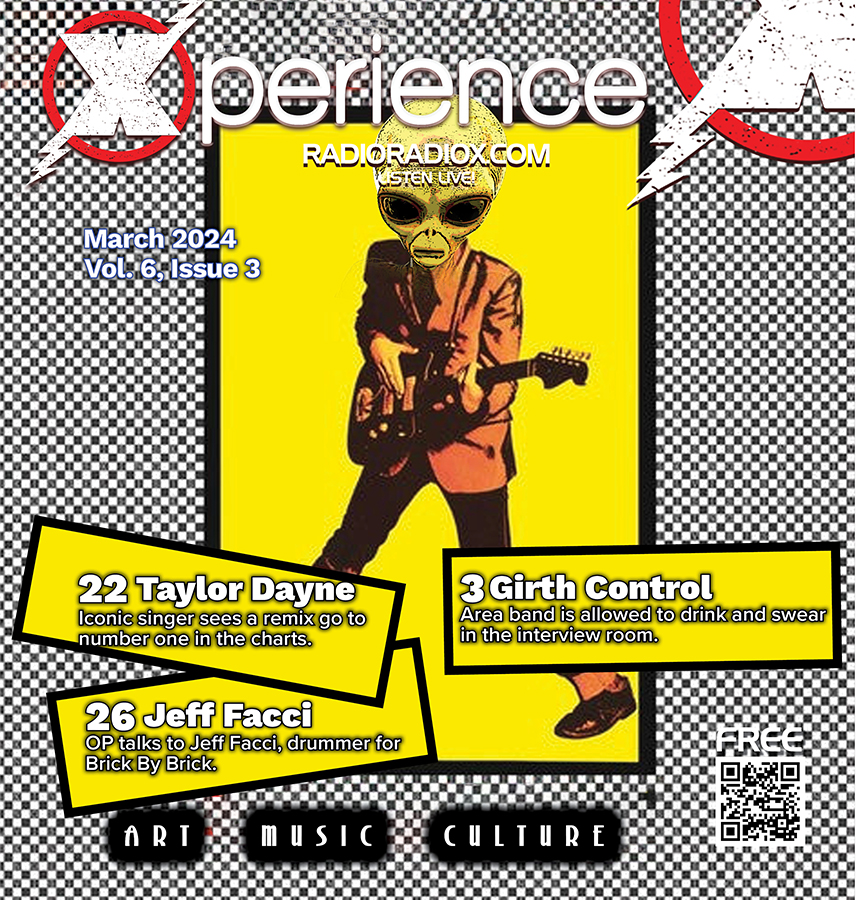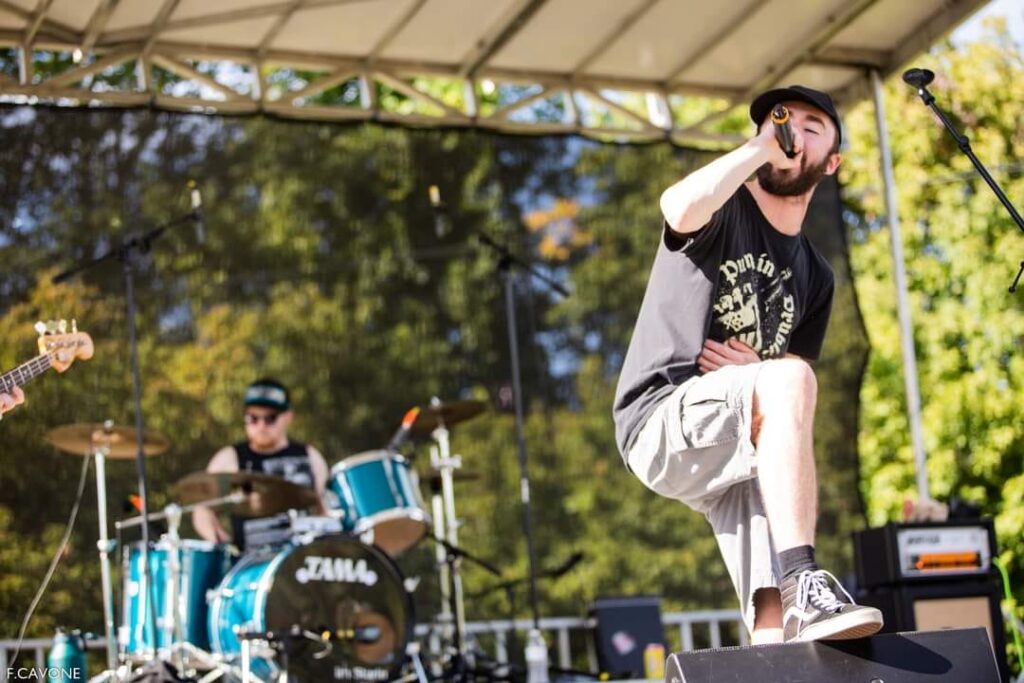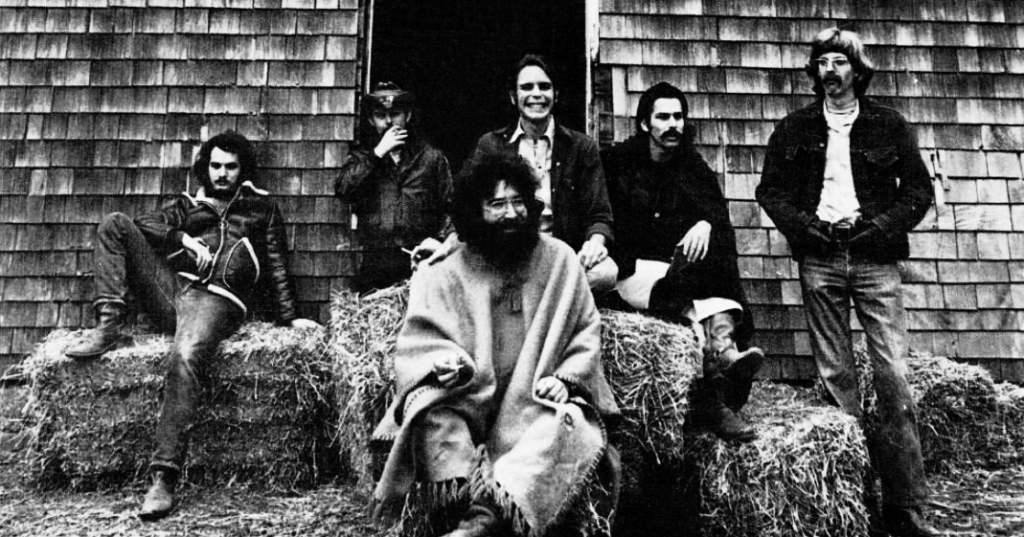Todd Nelson: No Stranger -By: Liam Sweeny
Written by Staff on September 5, 2021
RRX: One of the early bands you were a part of when you first arrived in the Capital
Region was called “Noonward Race,” inspired by a song of the same name by
Mahavishnu Orchestra. We were fortunate to have drummer Billy Cobham in a previous issue. What’s so inspiring about that band, in your opinion?
TN: Wow! You’re really reaching back. Noonward Race was a high school band in the early 70’s. We actually played one of the Mahavishnu Orchestra songs called Dance of Maya from the same album. John McLaughlin was a real inspiration for me at that time, and his band was very exciting in concert. I think the compositions have had the longest lasting effect on me. It was an instrumental band playing what was then called Fusion. My musical partnership, NEQ plays instrumental music, much of which I have written. We’re a hybrid of various rock genres and we’re almost finished with a recording of new songs I’ve written and the three of us have arranged and produced. Kyle Esposito is the bassist and Manuel Quintana is the drummer/engineer. They are both highly sought after musicians from the Hudson Valley. My personal goal is to bring back the instrumental rock hit…really.
RRX: Still going back, you played with Country Joe Higgins and the Playboys, where your career really started, and from that to Silver Chicken, headed by Jim Fish, both country rock. How did your time in country rock shape the music you’d eventually develop?
TN: I did my very first recording with Joe Higgins at 19. And my first forays into songwriting were with Jim Fish. Country Rock was basically what’s called Americana today. I try not to get hung up on genre splitting, because I think that’s about marketing music, not the music itself. But one of the bands I play with now is Marc Delgado’s group. His music could probably be called Americana so my Country and Country Rock experience is right at home. His album is called “Wildwood Road” and has just become available for streaming. He’s one of the best lyricists I’ve ever worked with; right up there with Val Haynes and Steve Cohen of Fear of Strangers. I played guitar on several of the songs.
RRX: Many people that have been in the area for a while might know you as the guitar player for The Units, with drummer Al Kash, singer Val Haynes, and bassist Steve Cohen. The band started with covers, but had a transition from covers to originals that involved the band Little Feat. Can you explain?
TN: Little Feat was doing an in store appearance at Just-A-Song, the record store. Lowell George wasn’t there but we talked with the other guys quite a bit. I remember Paul Barrere told us if we wanted to get anywhere, original songs were essential. So we started writing songs; together at first and then separately. We just dove into it. This was around ’78 or ’79. And then the 80’s music scene exploded with all kinds of new bands. There was an anything goes kind of vibe happening in songwriting at that time that made it less intimidating to write and play your own material.
RRX: The Units opened up for a lot of great bands in the early eighties, like The Police, B-52s, and REM, and more that space wouldn’t allow. What was going on in the live music scene back then? How would you compare, and maybe contrast it to now?
TN: I don’t want to seem like someone who says the old days were so much better. There are some good venues open now, and people still want to support live music. But it did seem more focused then. You booked a gig, put up some posters and word of mouth took care of bringing people to the show. Now it’s a more diffuse dynamic with social media. These changes have affected much more than the local music scene as I’m sure you are aware.
RRX: The Units was eventually renamed Fear of Strangers, and you put out an album, Faulty Products. Now, I’m assuming at that time, you had a lot of fans that really knew you for the covers you did, and experienced The Units/Fear of Strangers as a way to let loose on a weekend; were these people receptive to the album and the original stuff?
TN: The album was released long after we had started playing original music for our local audience. So by that time they had heard most or all of the songs, because that was how we developed them. Not in the studio, because it was too expensive then. So whatever adjustment there was had already taken place. The reception to the album regionally was overwhelming. When we ventured out of the Capital District it was much harder to attract an audience, except at CBGB in NYC where we had a following. Faulty Products, the record company, didn’t invest much in promotion. We were on our own.
RRX: You’ve really been over the map, musically-speaking. We see country, rock, and maybe beyond that, and there’s a Celtic stop-off that sees you playing guitar and mandolin with Donnybrook Fair and doing solo work for band members. Doing all this kind of music, is it hard to master one or the other, or is it sort of “one love?”
TN: The latter. It can be hard to become proficient in a style, but as a guitar player I’ve really played just about everything at one time or another. I don’t actually try to “master” a style, just incorporate it into my playing. I honestly do not care about being “pure” stylistically. In fact I don’t believe in it. What people in retrospect view as a pure example of blues, country or any genre is only a snapshot of something that is continually evolving. I don’t see the benefit of placing those guardrails on myself. For example, NEQ has a quasi-Latin Rock song on our new recording called “Block Party”.
After struggling with the solo for a while, I finally played one using my Fender
Telecaster, the least likely guitar. Kyle Esposito, the bassist called its sound, “fat twang”. These are the kinds of permutations that make me want to write and play music. You mention Donnybrook Fair. At the time I had very little awareness of Celtic music. I did listen for a time to Steeleye Span and Fairport Convention, but these were English folk rock bands, not Irish. It was an opportunity for me to join a working band when I really needed it. What often happens when I start playing unfamiliar music is I grow to appreciate it much more from being on the inside, and it gets incorporated without me thinking too much about it.
RRX: I thought it was interesting, as an end-cap here, that you did some originals with NRBQ producing, and with Dan McCarroll, now president of Warner Bros Records on drums. What is the story there? Was Dan McCarroll on his way to working in Warner Bros.? And how did you connect with NRBQ?
TN: I recorded three original songs with Terry Adams of NRBQ producing. I was introduced by Dan McCarroll who was friendly with him but I don’t remember how. I owe Dan one for that. Dan’s gregarious nature has served him well. Last I heard he had left Warner Bros and is the head of Amazon Music. But that could be old info. The music was eventually released on cassette by the band, Tornado Bait.



 RadioRadioX
RadioRadioX